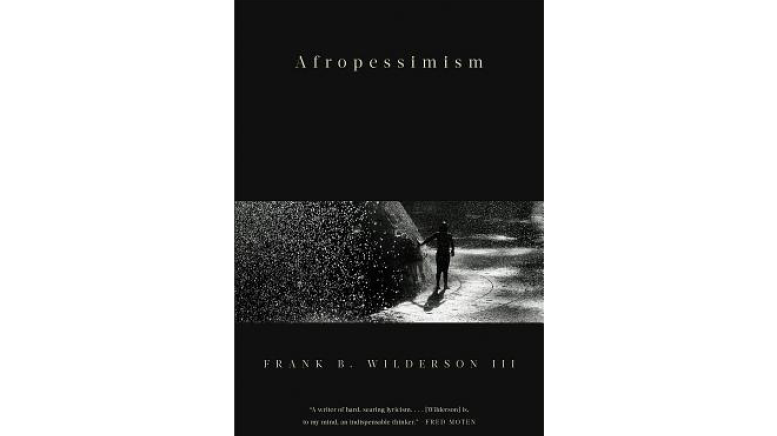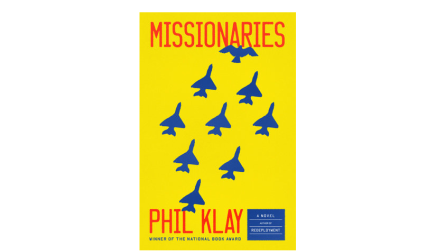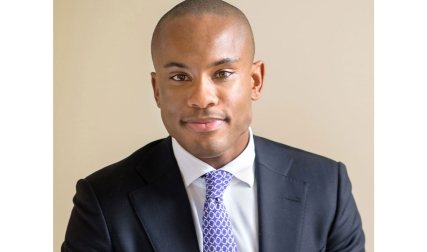Two months after the attack on the World Trade Center, an airport shuttle picked me up at my apartment in Berkeley [California]. It was winter, just shy of 5 in the morning. The air was clear and frosty, as Bay Area winter mornings often are. The sun had yet to rise. Winter doesn’t deserve its name in Northern California when set against the blizzards of my Minnesota youth. Now, in the early gloaming, broken knees of lightning kindled the blood-orange sky above the San Francisco Bay. It was going to rain.
Standing beside his idling van, the South Asian driver asked me twice if I was the person going to the airport—as though the wrong person had somehow come out of the right complex; as though I’d called him under false pretenses, not to go to the airport at all but simply to come out at that ungodly hour of 4:55 a.m. to annoy him, if not to rob him. I felt a chill of chastisement in his gaze.
I tossed my bags in the back and walked around and slid the door open. In the nugget of light that shone from the ceiling I found myself face-to-face with a middle-aged White woman and a hesitant middle-aged and bearded White man who peered at me from her left side. Their excess luggage took up the seat behind them; and we looked at each with that momentary, familiar, but all-too-mutual dread as we realized that I was going to sit next to her. I took more than ample care not to touch her thigh as I fished for my seat belt in the dark.
The van nosed down the road through the last seeds of night. The only light on Martin Luther King Jr. Drive came from the intermittent streetlamps. We were as quiet as death itself: the driver, the woman, her husband, and me. I felt angry; I had the sense that before I arrived they had all been engaged in spirited conversation, and that it had stopped when I got in. Was I the reason they had stopped talking? Could I be sure that they had been talking? Was this Black paranoia kicking in where a little common sense might be in order?
The face of the Pakistani driver when I came out of my apartment was still branded in my brain. Now this quiet discomfort; this silence on my behalf; this churning of my gray matter to make sense of it; this doubt that it was anything at all. Not that I want to speak with these ofays and their junior partner, I thought. But I wanted them to want to speak with me.
“George here works at Cal,” she finally said, stammering. “Are you at Cal? I mean, are you a professor or a grad student?”
No, lady, I’m a crackhead, just out on the prowl this morning.
“That’s wonderful!” she said, “Do you know Judith Butler?”
I told them a bit about my research, but rather than couch my research project in the language that animated me most (a synopsis of the structure of U.S. antagonisms between the triangulated positions of the Immigrant/Settler/Master, the Red/“Savage,” and the Black/Slave) I couched the synopsis of my research project in the language that animated me the least—questions of film theory and film historiography. I kept it simple and free of politics. When I finished speaking, everyone seemed to be relieved. Even the driver smiled at me through his rearview mirror and seemed to be at ease. I had accomplished the main objective of international Negro diplomacy: make them feel safe.
Now the taciturn professor ventured forth.
“Before you got in,” he said, “we were discussing this new law, the Patriot Act. Ghastly business. Is this still America? This man here”—he motioned to the driver, who smiled again and nodded at us in the rearview mirror—“shouldn’t have to come to this country and encounter xenophobia and persecution—what are we coming to?”
The Pakistani driver then weighed in with anecdotes dramatizing the injustices he and members of his community had been subjected to since the passage of the law. The Patriot Act was 400 pages long and neither the professor nor his wife nor the driver had read a word of it. I had read 170-odd pages of it and had written a synopsis of what I’d read for some Black folks in a retirement home in Oakland. They too had thought the law to be draconian and unjust—but, unlike the people in the shuttle to the airport, they did not think there was anything particularly new or un-American about the “new” law. A woman at the home, who was 80, had looked at me, shaking her head. “And they keep going to the polls, these Caucasians. They go back to the polls like it matters.”
But the memory of these Black folks’ response to my findings was lost on me as I traveled to the airport because the people in the van had taken a renewed interest in me. I had advanced from being feared to being tolerated to being valued. I was no longer a stimulus to anxiety. Tonight, I thought, I will be someone of whom the Pakistani driver speaks highly of to his wife or compatriots, the professor and his wife will talk about me and what I’ve said, on the plane and perhaps at their conference when they reach their destination. My desire was to be the object of their desire. There was no more Black or White or Brown in that shuttle. Through my words, a common sense of joy and a sense of a common purpose bloomed inside that small shuttle, where before there had been dread and division. We were all people. Just people. People who demanded the same basic form of fairness and accountability from our government. The thought of sneak-and-peek searches, the thought of unlawful wiretaps, the thought of expanded prohibitions on our freedom of assembly, the thought of the government sniffing around in our libraries and bookstores—well, that does it, we all agreed, that’s taking things just a bit too far. And I was not only part of and party to this multiracial consensus, but it was the miracle of my efforts, my research, my erudition, my labor, and my 52-teeth charm that had sutured this vigorous populism, this fire-and-brimstone accord in the wee hours of the morning. Not only were they taking me seriously—which is to say they truly thought that they thought that I could think—but I was now essential to them: I kindled the fire of their nostalgia for a democratic past; and they seemed to need, at the very same time, for me to somehow castigate them, beat them, as though only I could fulfill their masochistic urge to hear how bad their future would be. To this end, the woman turned to me and said something like, Sambo, now, don’t you spare me, Sambo, you hear, don’t you hold back, Sambo. Tell me just how bad it’s going to be.
Miss Anne, dey dun taken aw ciba lubbaties and sen’ ’um waaaay up yonda.
The professor sat there shaking his head. Way up yonder. He gazed at the ceiling. Way up yonder.
Now the terrain of conversation was cleared, once again, for the driver.
“Let me tell you about my community, let me tell the story of the wrongful arrests, the detentions without trial.”
We listened to him from within the folds of our renewed faith in redemption. We were more than a mere collection of common interests; we were an intrepid coalition of affect. Our mood and our will meshed into a warm cloth of amen and ain’t it a shame.
The driver said, “I don’t know why I ever brought my family to this country.”
And before I could disentangle the structure of my unassimilable Blackness from the mesh and mush of multiracial affect, I said, “Me neither.”
But these words shredded our mood.
The earth flipped. We all fell off.
The driver had said, “I don’t know why I ever brought my family here.”
And I had responded, “Me neither.”
The van was again uncommonly silent. It was as though a period had been placed in the middle of a sentence. The driver’s eyes flashed at me in the rearview mirror. The White woman beside me shifted the way she had shifted when I first got in. My “Me neither” was not being addressed. My “Me neither” hung in the air like a faint but unquestionably foul odor—an unexpected but not unattributable fart. To be sure, my odor had been emitted, but it had not been emitted in bad faith. I thought we were one—surely they could live with my smell if I could live with theirs. So robustly had I been hailed by the South Asian’s dilemmas of access to civil society and the good White folks’ dilemmas of the relative elasticity or rigidity within civil society that I had forgotten the first rule of international Negro diplomacy: make them feel safe. My presumed embodiment of the tenet of immigration (the presumption that moving from the plantation to the city was a form of immigration)—the presumption that I possessed the constituent elements of filiation (“my family” moved from the plantation to the city) rather than the ruse of borrowed institutionality, and that I furthermore possessed the constituent elements of volition and agency (“I brought my family from the plantation to the city”), all this, spoken in my “Me neither,” had somehow tampered with the safety upon which the triangulated goodwill and warm feelings between what Jared Sexton calls citizen, non-citizen, and anti-citizen depended: the White professor and his White wife being the citizens, the Pakistani a non-citizen, and me being the anti-citizen. I had sutured the equilibrium of the universe through my recitation of the dreaded Patriot Act and then, with the same ease and unthinking intuition, I had dared to threaten the equilibrium of that fragile universe by thinking a Black thought out loud. In their 30 seconds of silence, I felt my flesh peel away. With two words, Me neither, I had fallen from grace. I went from warm and fuzzy Sambo to W.E.B. Du Blac.
The professor and his wife were ready for this ride to the airport to end. But the Pakistani driver had the same kind of new-arrival fight in him that the couple had possessed two hundred years ago when their people were immigrants. He looked at me unsympathetically in his rearview mirror, as if to say, Did you make a mistake, an honest, innocent mistake, the kind of mistake anyone can make in the joy and euphoria of the moment; or were you fucking with us—being a smart-ass whose sole intent was to shit on the inspiration of the personal pronoun we?
His eyes flicked from the street ahead to my image in his mirror. Slowly and deliberately he said, “Sometimes I want to pack my bags and go back home.”
No one spoke. No one even breathed. The engine groaned uneasily as we turned onto the exit ramp.
I threw down the gauntlet, sat up straight, and cleared my throat. “Yeah,” I said, “me too.” This time, the smell was unmistakable. It was the stench of something burning; a field of cotton up in flames.
Into this fire the professor’s wife rushed with the only water she could find. “Being homesick,” she said, “now, there’s a universal phenomenon. We’ve been going to this conference for years and we still miss the kids when we’re gone.”
“Which is more than we can say for the kids,” her husband chimed uneasily.
I felt something pressing itself into the palm of my hand as it lay at my side—insisting I take hold. To this day I don’t know if it was the cold hard door handle or the handle of a blade.
The shuttle that I took to the airport in the wake of 9/11 was a microcosm of a captive scenario where Blackness exists inside and beneath the specter of policing, thinly disguised as the work of social movements dedicated to the expansion and democratization of civil society. It shows how the libidinal economy of values (access to institutionality, universal suffrage, unfettered mobility, etc.), when set in motion by social justice initiatives, is predicated on the intensification of Black suffering and death. Four people rode in that van that morning. But one of those four was subjugated by a regime of violence that bore no resemblance to the regimes of violence that subjugated the others. The people in the van policed my pain, my bearing witness to the singular structure of anti-Black violence.
Excerpted from Afropessimism by Frank Wilderson III. Copyright © 2020 by Frank B. Wilderson III. Used with permission of the publisher, Liveright Publishing Corp., a division of W.W. Norton & Co. Inc. All rights reserved.



